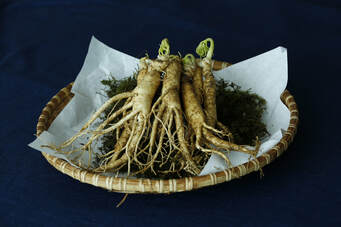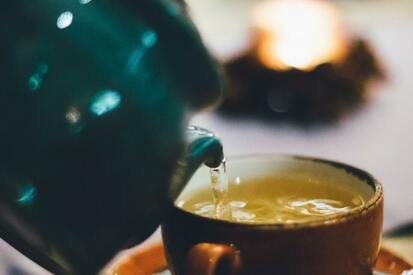 Migraine headaches are a bit of mystery to the medical world. This ailment tends to be poorly understood and frequently undiagnosed and undertreated. According to the Migraine Research Foundation, this neurological disease affects nearly 39 million Americans. Migraines are characterized by severe, throbbing pain usually found on only one side of the head. Migraine headaches can also be accompanied by visual disturbances, dizziness, nausea, vomiting and extreme sensitivity to light and sound. These types of headaches can last from four hours to several days. Because modern medicine doesn’t completely understand this neurological phenomenon, the typical treatment is somewhat hit or miss. There is an alternative though and this alternative is Traditional Chinese Medicine (TCM), which may include acupuncture, herbal formulas, tuina massage and cupping. Because TCM is customizable to the individual, it can do much more than just relieve pain. Here are five reasons why migraine sufferers should consider getting acupuncture: 1. Acupuncture has been proven to relieve migraine pain. This is the number one reason TCM practitioners have people walk through their office doors. Pain, whether associated with migraines or not, is epidemic in the United States. Literally thousands of studies have shown acupuncture treatments can effectively relieve and reduce pain. This can be done both for acute and chronic pain. When acupuncture is coupled with tuina massage or cupping, the results can be even longer lasting. 2. Acupuncture reduces inflammation. While migraines are not completely understood, it is agreed upon by most professionals any headache involves some sort of inflammatory response by the body. Acupuncture promotes the release of vascular and immune-mediating factors that actually decrease inflammation. 3. Acupuncture can reduce serotonin levels. Serotonin is a hormone the body creates and many researchers, scientists and neurologists believe serotonin may be linked to the initiation of migraines. Since acupuncture can be used as preventive medicine, it can also help to balance serotonin levels on a long term basis, thus making migraines less likely to develop. 4. Acupuncture can help with the symptoms of migraines. Acupuncture and herbal formulas can treat much more than just pain, including the symptoms of migraines. Studies have shown things like nausea, dizziness and vomiting can all be reduced through the use of regular treatments. Herbal formulas can be used in between acupuncture treatments to keep the symptoms under control. 5. Acupuncture improves blood circulation. Many times, when a person experiences pain, it is because of a lack of proper blood flow and decreased oxygen. This is as true for migraines as any other type of pain. Acupuncture can improve blood circulation, which also increases the amount of oxygen that reaches the tissues. Cupping on the muscles surrounding the head, neck and shoulders is another modality that can assist with this as well.  Ginseng is said to resemble a human body in shape, and it has been used for years in Asia. Recently, it has become a popular item in Western culture. Many claims about this root have been advertised, such as its reputation for extending longevity and its use for stamina and endurance. Let’s look at the types of ginseng and the differences. There are three main types of ginseng used: Panax Oriental Ginseng: This ginseng is stronger than American ginseng. It is used as a general tonic, immune booster, anti-oxidant, anti-cancer herb and to calm the mind. The taste, which in Chinese medicine indicates the organ it benefits, is sweet, slightly bitter and warm. This benefits the heart, spleen and lungs. As it is calming, it also helps relieve heart palpitations and insomnia. A main function in Chinese medicine is that this root generates fluids and quenches thirst in heat conditions. Ren shen benefits the “Original Qi,” hereditary energy we are born with and can help rid exhaustion. American Ginseng: American ginseng nourishes the yin of the body, especially in cases of the deficiency of yin. When one is deficient in yin, there are signs of heat in the yang that has become more exuberant. This ginseng root also helps fire excess, or exuberance of yang, because it generates fluids and helps dryness, heat, thirst and fever. Its taste properties are bitter and slightly cold. Siberian Ginseng: Siberian ginseng is not in the same category as the previous types mentioned. It is a weed, cheaper, and is used in Chinese medicine to help arthritis due to its benefit of dispelling cold and damp from the body, otherwise known as cold bi syndrome. It is best to see a Chinese medical specialist or another qualified health care practitioner to get ginseng in a formula appropriate for your particular constitution, as ginseng can have serious side effects such as heart palpitations, dry mouth, dizziness, headache, high blood pressure and anxiety. Those with excess yang energy should not take ginseng. There are also possible drug interactions with ACE inhibitors, blood pressure medications, blood thinners, diabetes medications, stimulants and antidepressants. Ginseng is best used as a preventative tonic rather than a medicine, as it can prevent a pathogen from leaving the body’s “comfortable house”. Your Chinese medical specialist can assess which herb is right for you and how to include it in a formula. It is not advisable to self-diagnose and take new herbs that may harm your health.  Next time you’re in a wide open field, pasture or meadow dotted with beautiful yellow dandelions, know that these prolific little delights are not only beautiful, but packed with nutrition and offer a host of healthy benefits. Let’s explore this amazing flower. Dandelions are known as Pu Gong Ying in pinyin and are used frequently in Traditional Chinese Medicine. The name comes from the French “dent-de-lioun,” which translates into “tooth of the lion” due to its sharp leaves. They are known to aid the liver, kidneys and gallbladder in particular. In Chinese medicine herbs are used to heal, this includes flowers, bark, roots and seeds. For example, if an herb is considered “warming,” it is given for cold conditions. An herb that is bitter would clear heat and detoxify. If an herb is sour it benefits the liver. If an herb is red it benefits the heart and blood. TCM creates herbal formulas that use a combination of different herbs to balance the formula and keep it safe. Dandelion is considered a cold, bitter and slightly sweet herb. Its milky juice clears heat, detoxifies blood, reduces swelling and helps the early stages of a cold. Dandelion helps the liver and gallbladder by increasing bile production, and helping in cases of jaundice. Often dandelion is combined with licorice, milk thistle and fennel. Here are some other key benefits of this flower:
It is ALSO in my favorite Coffee Alternative called Rasa which I kind of drink every day now. Full of adaptogenic herbs, that it TCM are usually longevity herbs or light tonics, it can improve energy while also strengthening your adrenals and improving your stress response. Basically - it's awesome. You can learn more by clicking HERE or you can check it out in my Portland office!  In a 2014 study published in the World Journal of Gastroenterology, researchers conducted a meta-analysis of six randomized, placebo-controlled, clinical trials and found acupuncture had a statistically significant, positive effect on IBS symptoms. The study found acupuncture was helpful in alleviating a variety of symptoms, including abdominal pain, stool state, and abdominal distention, among others. Between 25 and 45 million people suffer from irritable bowel syndrome, IBS, in the United States. Symptoms of IBS vary from person to person, but IBS is commonly characterized by intestinal pain and either diarrhea or constipation. Symptoms also vary from moderate to severe, but either way, the discomfort needs to be managed long term. The cause of IBS is not completely known, but one hypothesis suggests it has to do with a disruption of neurotransmission between the intestines and the central nervous system. Along with diet and lifestyle changes to manage the symptoms, some people turn to medication for support. Systematic reviews of IBS medication have shown inconsistent success, and no one drug has been found to treat all the symptoms of IBS. In light of ineffective and expensive medications, many people have started turning to acupuncture in order to address the symptoms of IBS. Digestive disturbances are often related to inflammation of some kind, which is one of the conditions acupuncture has been proven to address very well. There are also acupuncture points specifically related to metabolism, increasing gastrointestinal muscle contraction and relaxation, reducing gastric acid secretion, regulating large intestine function and balancing stomach acidity, all of which can support balanced digestive function and support patients with IBS. Digestive disturbances are also often related to chronic stress in a person’s life. Many acupuncture points are related to reducing stress in the body. Lastly, digestive disturbance is also linked to people’s diet and nutrient deficiencies in the body. Traditional Chinese Medicine, or TCM, is the medical umbrella under which acupuncture falls. TCM treatments are often a combination of acupuncture, herbal tonics and exercise or movement. Chinese herbs can balance out many nutrient-deficiencies a person might be experiencing that can exacerbate IBS. TCM is a holistic philosophy that incorporates symptom relief as well as lifestyle and diet considerations to develop a well-rounded, personalized treatment plan. IBS can be a debilitating condition, but it doesn’t have to be. Acupuncture and Chinese herbs can be a great alternative for managing the symptoms. If you or a loved one struggles with IBS, contact a licenced acupuncturist in your area to learn how they may be able to help you find relief.  Digestive disorders can be simple like flatulence or gas, or they can be much more serious, such as Crohn’s disease. But regardless of the severity of the disease, there is no doubt digestive disorders affect far more people than they should, especially in the United States. A recent survey reports nearly 74 percent of all Americans are living with digestive issues. Most people don’t report it to their doctors either, because they assume it is normal to have gas, bloating or abdominal pain. But these symptoms can be indicators of much more serious underlying problems. The gut is also the “second brain” of the body. When there are problems in the gastrointestinal tract, it can manifest mentally as well as physically. The enteric nervous system, our gut/second brain, is composed of more than 100 million nerve cells that line the gastrointestinal tract from the esophagus to the rectum. The ENS can trigger emotional shifts experienced by those suffering from gastrointestinal issues. But what science is also discovering is that emotional problems can also trigger issues in the ENS. It’s a two-way street and if one is out of whack, then the other may be also. There are ways we can help our gastrointestinal tract and digestion, though. Traditional Chinese Medicine (TCM) is a medical system that has been around for thousands of years, and it focuses on treating the person holistically, meaning every part is addressed at once instead of individually. TCM uses modalities like acupuncture, acupressure, herbs, formulas and nutrition to treat each patient. Here are some herbs used frequently in TCM to help with digestion and gastrointestinal issues. 1. Dandelion or Pu Gong Ying: This herb has been used for millennia for liver and digestive problems. It is used specifically for its diuretic properties. Pu Gong Ying promotes healthy digestive functioning and unlike pharmaceuticals used as diuretics, this herb actually restores potassium rather than depleting it. 2. Hawthorn Berry or Shan Zha: Shan Zha is a great herb to have on hand after those big family dinners, like Thanksgiving. This herb works to remove food stagnation in the digestive tract, and it works especially well on meats and fats that are harder to digest. 3. Orange Peel or Chen Pi: One of the best herbs around for regulating the whole digestive system. It is used for spleen and stomach issues in TCM, including nausea, belching, vomiting, abdominal distention and pain. Due to its bitter flavor, it can also drain dampness that may cause loose stools. 4. Ginger or Sheng Jiang: Ginger is a great digestive herb, as well as a warming spice that helps the circulatory system. It is a natural remedy for heartburn and nausea. It also helps expel gasses from the gastrointestinal tract. 5. Peppermint: While not formerly used in TCM, it is still one of the best digestive herbs available. Peppermint can be used to relieve indigestion, soothe stomach aches and relieve diarrhea caused by colic. It is also a good addition to help treat irritable bowel syndrome. Herbs can be very beneficial and help keep the body free from illness. The herbs mentioned above are just a few examples that would be good to have around if you suffer from digestive issues. Ask us to find out more about these herbs. We can help you navigate the world of medicinal herbs and find the exact combination right for you. |
AuthorsRebecca M H Kitzerow is a Licensed Acupuncturist practicing in La Center, Washington. With over a decade of experience she has won 10 Nattie consumer choice awards from Natural Awakenings Magazine since 2014. Archives
July 2024
Categories
All
|
Photos from Hey Paul Studios, BeGreen_Studio, Pawel Pacholec, 1950sUnlimited, toulupaliaqaz, Joelk75, OnTask, Robert Gourley, cnu_sports, Mitya Ku, wuestenigel (CC BY 2.0), FootMassagez, 401(K) 2013, Mariana Heinz, @EdwardTerry, fishhawk, liverpoolhls, torbakhopper, Boemski, dolomitibl, Driscolltheque, Dave n Laura, Vaping360, MVWorks, Life Mental Health, MVWorks, mikefats, Scot Nelson, jfl1066, wZa HK, ruurmo, Guadalupe Cervilla, Army Medicine, GViciano, torbakhopper, adrigu, Saulo Cruz, Ben Cumming, marniejoyce, kcxd, JasonCorey, kanenas.net, Live to Create Photography, gm.esthermax, Unique Hotels Group, Zenspa1, mysiana, Tobias Lindman, Leader Nancy Pelosi, Kristoffer Trolle, swanksalot, Bill Selak, Parker Knight, stimpsonjake, Gedankensprudler, SuperFantastic, tonynetone, marniejoyce, JeepersMedia, Illusive Photography, 'Ajnagraphy', Iban Torras, scotted400, gtall1, dvanzuijlekom, BPPrice, Skley, torbakhopper, Renato Ganoza, anka.albrecht, QUOI Media, Public Domain Photos, Instant Vantage, Victor Tongdee, Free Grunge Textures - www.freestock.ca, sportEX journals, Nadja Tatar, angela n., marniejoyce, MVWorks, Karolina Kabat, Thomas Fisher Rare Book Library, UofT, ginnerobot, tracilawson, haven't the slightest, My Photo Journeys, Pierre Willemin, Florena_Presse, SuperFantastic, colindunn, zzkt, TraumaAndDissociation, ER24 EMS (Pty) Ltd., shixart1985 (CC BY 2.0), marniejoyce, Tomás Fano, freestock.ca ♡ dare to share beauty, Archives New Zealand, Jaykhuang, airdrie.m, Go-tea 郭天, OnTask, wuestenigel, focusonmore.com, Disney | ABC Television Group, Andrew Gustar, Didriks, ConstructionDealMkting, charlywkarl, barnimages.com, Lel4nd, runwaypilates, michaelstephanfotografie, McLevn, TraumaAndDissociation, eLife - the journal, Lars Plougmann, wuestenigel, shixart1985, boviate, davis.steve32, kevin dooley, @the.photoguy (insta), frederic.gombert, Feathering the Nest, Victor Tondee, shixart1985, wuestenigel, Joe K Gage, kennethkonica

 RSS Feed
RSS Feed
